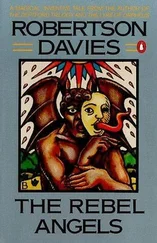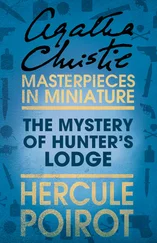Hunter Davies - The Eddie Stobart Story
Здесь есть возможность читать онлайн «Hunter Davies - The Eddie Stobart Story» — ознакомительный отрывок электронной книги совершенно бесплатно, а после прочтения отрывка купить полную версию. В некоторых случаях можно слушать аудио, скачать через торрент в формате fb2 и присутствует краткое содержание. Жанр: unrecognised, на английском языке. Описание произведения, (предисловие) а так же отзывы посетителей доступны на портале библиотеки ЛибКат.
- Название:The Eddie Stobart Story
- Автор:
- Жанр:
- Год:неизвестен
- ISBN:нет данных
- Рейтинг книги:4 / 5. Голосов: 1
-
Избранное:Добавить в избранное
- Отзывы:
-
Ваша оценка:
- 80
- 1
- 2
- 3
- 4
- 5
The Eddie Stobart Story: краткое содержание, описание и аннотация
Предлагаем к чтению аннотацию, описание, краткое содержание или предисловие (зависит от того, что написал сам автор книги «The Eddie Stobart Story»). Если вы не нашли необходимую информацию о книге — напишите в комментариях, мы постараемся отыскать её.
The Eddie Stobart Story — читать онлайн ознакомительный отрывок
Ниже представлен текст книги, разбитый по страницам. Система сохранения места последней прочитанной страницы, позволяет с удобством читать онлайн бесплатно книгу «The Eddie Stobart Story», без необходимости каждый раз заново искать на чём Вы остановились. Поставьте закладку, и сможете в любой момент перейти на страницу, на которой закончили чтение.
Интервал:
Закладка:
‘But he was also very sensitive and generous, would do anything for people. He was always quite quiet; all the boys were quiet, really. Anne was the talker in the family; she was the clever one.’
Anne was the only person to pass the eleven-plus in her year at Howbeck. ‘In fact,’ she says, ‘I was told I was the only one to have passed it for seventeen years – the last one being my Uncle Ronnie.’ She went to Wigton Nelson Tomlinson grammar school at Wigton – alma mater of Melvyn Bragg.
When it was time for Edward to sit his eleven-plus, he had no expectations. ‘I never thought for one moment I would pass,’ he says. ‘I was useless at all school work. In the exam, I couldn’t answer a single question. I just sat there, drawing tractors. I felt pretty disgusted with myself. I don’t remember any one else in my year passing, so we all went to the secondary modern together.’
This was Caldew School, Dalston, opened in 1959, so still quite new when Edward arrived in 1965. It became a comprehensive in 1968, while Edward was still there. There were five hundred pupils, both boys and girls, and lots of playing fields and space, being in a semi-rural situation. Dalston itself is a rather affluent dormitory village, just five miles from Carlisle, facing towards the Caldbeck Fell. Each day, Edward went on his bike into Hesket then caught the school bus for the ten-mile journey to Dalston.
Edward remembers, ‘I was put in the dunces’ class from the beginning, in Mrs Carlisle’s class. William got put in the same class when he arrived. We were both big dunces all the way through our school lives. They called it the Progress Class. But we all knew what it meant.
‘I was never good at writing. If I concentrated really hard, I might just make six spelling mistakes on a page. But usually I got every word wrong. I could never see the point in writing. I didn’t feel thick; I was just a dunce at lessons. I felt older than the others in many ways. At twelve, I felt about twenty. I knew about general things, about how things worked, which they didn’t. I wasn’t street-wise – I never watched television at home, ever, so when the other lads spent hours talking about TV programmes, I didn’t know what they were on about. But all the same, I felt mature compared with all of them.
‘I’m not sure what they thought of me. A bit strange perhaps, eccentric. I was a bit of a loner – I never wanted to be in anyone’s gang and I didn’t have a best friend. At playtime, I’d often go and help the school gardener. Even during lessons, I’d try to get off and go with him. I always wanted to use his lawnmower – one of the big ones, you know, that you can sit on and drive. I thought it was a brilliant machine. But he’d never let me. Instead, he’d let me help on the hedge cutting. I enjoyed it better than any lessons.
‘But I had some good laughs at school, got up to mischief now and again. I once locked a teacher in the store cupboard. The deputy headmaster was Mr Mount. We called him Bouncer – I suppose because he was small and fat and bounced along.
‘I got caught once for smoking by Bouncer. It was me and John behind the gym wall. It was reported to our parents. My dad wasn’t very worried: “Did it make you sick?” he asked me. I said yes. “Same as me,” he said. He was very laid-back, my dad. He gave us a lot of rope.’
Nora worried about Edward’s bad school reports, but always told him that all he could do was his best. ‘The trouble was, Edward never did his best. So I used to tell him that at least he must always be honest.’
Kenneth Mount, now retired but still living in Carlisle, remembers the Stobart boys well. He taught at Caldew School from its 1959 opening until 1986, when he retired. He became deputy headmaster and was indeed known as Bouncer – but not for his appearance, so he says. ‘I was called Bouncer because I bounced them out of school. Oh yes, I could be very tough on them.’
He confirms that Edward went into the remedial form on his arrival at the school. ‘We would have had reports from his primary and knew that he wasn’t very good at reading and writing. No, he wasn’t ESN [educationally subnormal]. We had special schools for those sort at the time in Carlisle. If he’d been really bad, he would have gone there. He was just, how shall I put this as I have no wish to be derogatory? A slow learner. William was even slower. Academically, neither was exactly successful.
‘But you have to understand that they were typical of many country lads. School was an irrelevance to them. They would be up early morning doing jobs on the farm, then working in the evening when they got home. School was just what they did during the day. And if you think about it, it was more interesting for a certain sort of boy to be at home, surrounded by machines and animals, than sitting at a desk in school. But Edward’s character was excellent, and his behaviour. I knew the family; I knew he came from a good Christian home.’
On Sundays, Edward went to Sunday School and to church with his brothers and sister. Given a choice at the time, he would not have gone as he didn’t enjoy it. It was just something he was forced to do, although he did believe in God.
There was some slight social demarcation at school amongst the rural children, between the various farmers’ sons. Many of these were hard up, especially if their fathers were small-holders in rented farms, or if they were farm labourers or farm contractors. Some farmers were, by contrast, quite well off, or appeared well off, especially if they owned several vehicles, as the Stobarts did.
‘I knew my father was a contractor, with about four or five people working for him but, no, I never felt well off,’ says Edward. ‘We did have a car, a Morris Oxford, but I never had a new bike. I always had a second-hand one. We did have a summer holiday, but never abroad. We usually went to a guest house in Cornwall or Devon.
‘The pipes once got frozen at school and we were all told to bring our own drinks to school. I took a bottle of water. Some people brought bottles of lemonade. I remember thinking, well, they must be well off …’
Edward was fascinated by money from an early age and was always looking for jobs that would earn him something. From about the age of eleven, he did what his father had done as a boy, chopping up wood to sell as kindling sticks. He seems to have had it better organized than his dad, making an attempt at mass production. Edward got his dad to order a load of old railway sleepers, which he paid for, then had them sawn up into lengths. He chopped them into sticks and bagged them in old animal-feed bags he got from his Uncle Ronnie’s cattle-feed mill. Each day, he would take two bags of sticks on the school bus to Dalston, thereby getting free transport, where he sold them to teachers at three shillings a bag.
Very soon, Edward’s earnings mounted up. He always kept his money in cash, in his pocket, and when the coins grew too bulky, he changed them into notes. By the age of fourteen, he was carrying around with him £200 in notes: an enormous amount for a boy of fourteen in 1968. Today, of course, we would immediately suspect a schoolboy with such a sum of selling drugs. Not Edward, though, from his God-fearing family, in rural Cumbria.
Edward isn’t sure why he didn’t put the money in a bank or the post office, to make it earn a little bit of interest: ‘I don’t know – I just liked the feel of it. I always kept it in this trouser pocket, at the front, all the time – even when I was at school.’ Nor is Edward sure why he didn’t leave the money at home, if only under the bed. ‘Perhaps I worried about burglars,’ he muses. ‘It just seemed safe, always having it on me.’
Edward didn’t, however, leave the money in his pocket when he changed at school for PE or games. ‘Oh, I took it out of my pocket then. I’d hide it in a secret place: in my satchel …’ That must have fooled everyone. Yet Edward insists that he didn’t even half-want people to know, to be aware that he was a boy of means. ‘I never told people. I didn’t go around boasting at school. My parents didn’t know either. I can’t really explain it, except to say I just liked the feeling of having my money on me.
Читать дальшеИнтервал:
Закладка:
Похожие книги на «The Eddie Stobart Story»
Представляем Вашему вниманию похожие книги на «The Eddie Stobart Story» списком для выбора. Мы отобрали схожую по названию и смыслу литературу в надежде предоставить читателям больше вариантов отыскать новые, интересные, ещё непрочитанные произведения.
Обсуждение, отзывы о книге «The Eddie Stobart Story» и просто собственные мнения читателей. Оставьте ваши комментарии, напишите, что Вы думаете о произведении, его смысле или главных героях. Укажите что конкретно понравилось, а что нет, и почему Вы так считаете.












